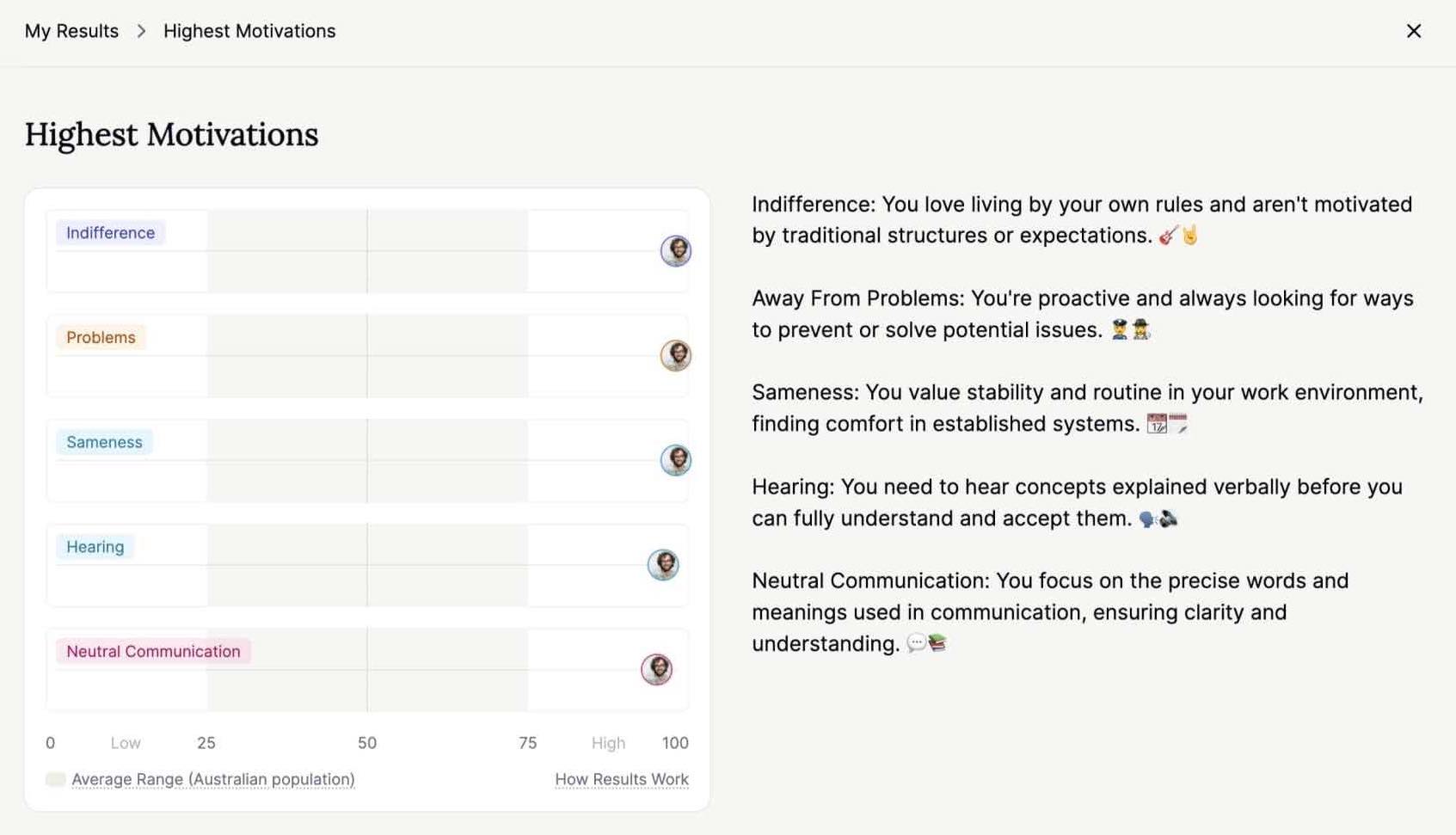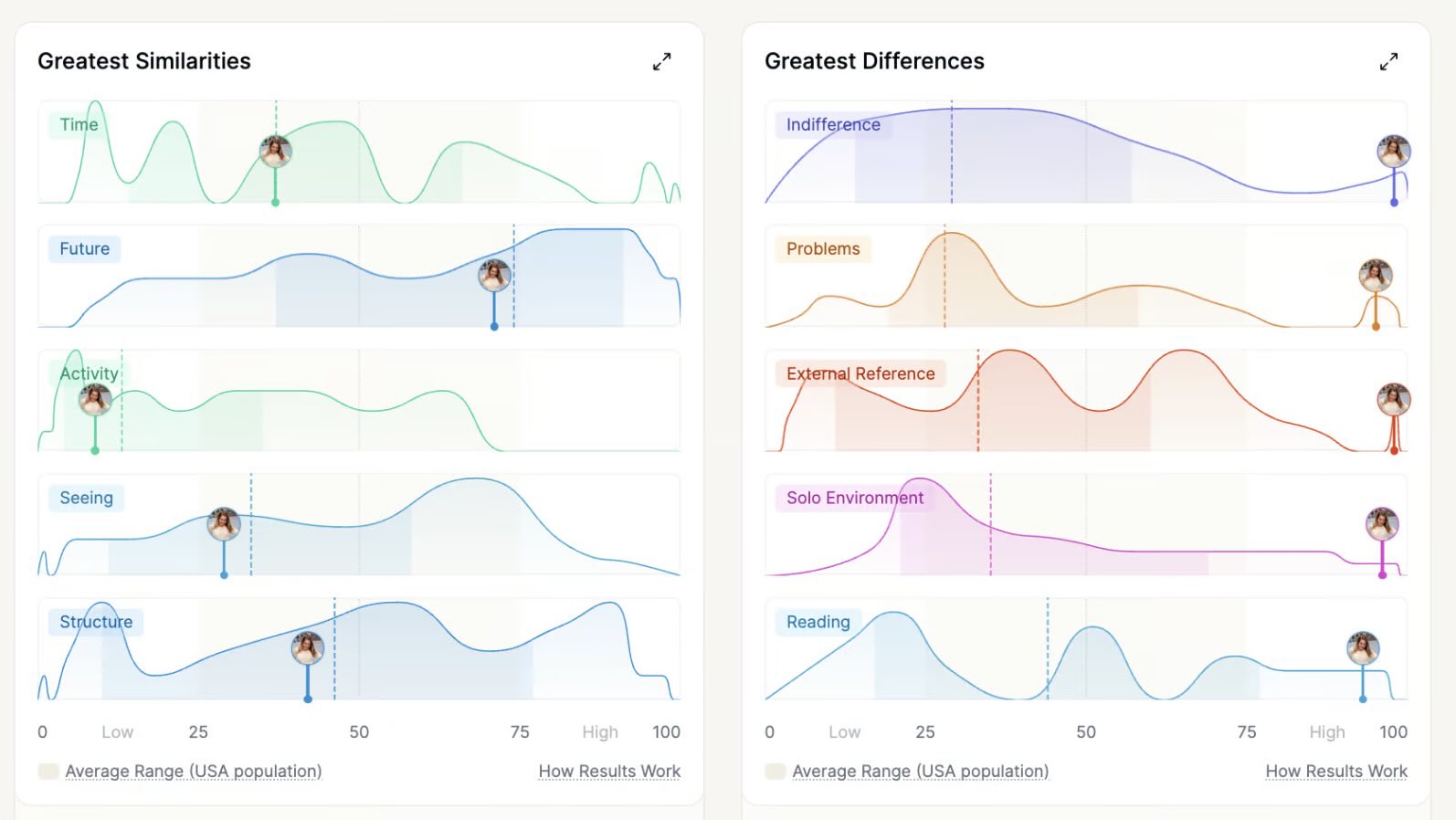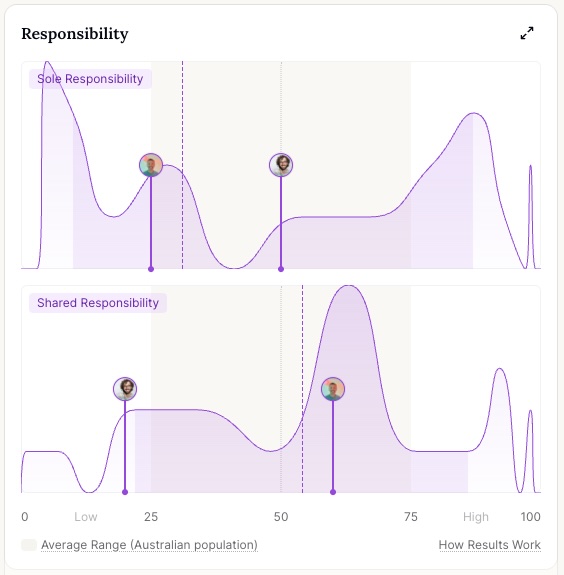How do you handle working under pressure? Start with energy
Most people think pressure is about stress. But it’s often a mismatch between your work and what truly fuels you. This guide will help you align your motivation, protect your energy, and perform at your best, especially under pressure.
- Author
Michael Metcalf

Let’s talk pressure. For many of us, it’s showing up more than ever: tight deadlines, rising expectations, and unclear boundaries between work and rest. But most pressure isn’t just about having too much to do; it’s about doing work that drains your energy day after day.
At Marlee, we’ve seen it firsthand. After analyzing the workplace motivations of nearly 400,000 individuals globally in our Gen Z at Work Study, we know most pressure isn’t just about workload, it’s about misalignment. When your daily tasks don’t match how you’re wired to work, everything feels harder.
Whether you thrive in shared responsibility, solo execution, or fast-paced innovation, understanding what fuels your energy can make all the difference when pressure hits.
This guide will help you develop self-awareness and give you the strategies to not only survive high-pressure situations but also perform at your best. Whether you're preparing for a tough interview or trying to avoid daily burnout, it all starts with energy that lasts.
What does it mean to work under pressure?
Working under pressure isn’t just about tight deadlines or packed calendars. It’s the emotional weight that builds when the demands of a task start to outweigh your energy or control. That pressure can come from outside, such as unrealistic workloads or shifting roles, or from within, such as perfectionism or self-imposed expectations.
It often shows up as stress, anxiety, irritability, or brain fog. A little pressure can be motivating. However, prolonged pressure, left unchecked, leads to burnout. The key is learning how to spot it early and designing your work life to handle it well.
How to answer “How do you work under pressure,” and mean it
Whether you're stepping into a high-stakes interview or being considered for a fast-moving project such as a digital transformation sprint, a regulatory overhaul, or a climate-focused innovation task force, chances are you’ll be asked: How do you handle pressure?
It’s an important signal. People want to know: Can you adapt quickly when things shift? Can you lead yourself and others through ambiguity? Can you bring calm, clear thinking when the stakes are high?
It’s easier to answer that question (and back it up) when you know what energizes you and what drains you. At Marlee, we’ve found that people don’t crumble under pressure because they’re incapable. They struggle because their energy is being pulled in the wrong direction.
So if you’re asked how you work under pressure, try framing your answer around how you stay energized and effective. For example:
“I know I’m most motivated by structure and fast execution, so in high-pressure moments, I create a clear workflow, break down tasks fast, and move quickly on top priorities. That’s how I stayed focused during our AI upskilling sprint, where we had to ship new team processes in under two weeks.”
Or maybe your energy comes from group dynamics and collaboration:
“I stay grounded under pressure by leaning into my team. During a sustainability compliance project, we were up against shifting targets. I brought the team together daily for short stand-ups so we could adjust in real time, redistribute tasks, and keep momentum.”
Great answers don’t come from scripted lines. They come from self-awareness. Whether you're in an interview or already embedded in a complex project, being able to name your work style and give a real-world example demonstrates that you’re ready to lead through uncertainty.
🎯 Not sure what energizes you? Our free motivation assessment helps you reflect on what drives your best work and where pressure is more likely to lead to burnout.

A Marlee Individual Results Board showing the highest motivations
5 Strategies to help you stay energized under pressure
Once you’ve started to understand what fuels you, the next step is designing habits that support your energy, especially when pressure starts to build. These five strategies won’t just help you cope. They’ll help you stay in flow, think clearly, and keep showing up at your best when the stakes are high.
1. Write it all down, don’t carry it alone
Your brain’s not a filing cabinet. When you’re under pressure, trying to mentally juggle tasks, worries, and expectations only adds to the weight. Offload it. Write down what’s on your plate and how you’re feeling about it.
What’s blocking your progress? What aren’t you enjoying? Is something unclear, overwhelming, or just plain draining? You don’t have to solve everything straight away. But getting your thoughts out of your head and onto paper or screen can calm your nervous system, reveal new patterns, and help you feel more in control. You might even uncover fresh insights on something that’s been feeling stuck.
📖 Read more: 10 Proven time management techniques to boost productivity
2. Shrink the task to shrink the pressure
When pressure hits, even the simplest project can feel like a mountain. Stepping out too far and looking at the big picture can trigger overthinking or a state of paralysis. Instead, break your work into micro-tasks. Ask yourself What’s the very first step? Can I do just that?
As you break things down, you’ll often spot the part that’s causing the most anxiety, maybe it’s unclear, emotionally loaded, or just not your work style. Tackling that piece first can release some of the pressure and help you feel more in control.
This is about building momentum. Each time you complete a small step, even replying to one email or opening the draft, you send a signal to yourself: I’m moving. That’s what restores your sense of progress, without needing everything figured out at once.
😳 Struggling to get started? Try Start Fast: our AI coaching program to boost your energy and take action on great ideas, fast.
3. Prioritize with flexibility
When everything feels urgent, it’s easy to default to reactive mode. But not all pressure is created equal, and not everything on your plate deserves equal energy.
Start by sorting your tasks into four quick prompts:
- What’s urgent and truly time-sensitive?
- What’s blocking other progress?
- What’s causing the most anxiety or resistance for me right now, and why?
- Is there a task I could delegate or collaborate on, especially if it aligns better with someone else’s strengths or motivation style?
Use your answers to identify the one or two tasks that need your focus today. Then, pause and check: Is this still the most impactful thing to focus on now, or has something shifted?
Pressure often builds when plans become rigid. But staying flexible doesn’t mean you’re unfocused; it means you’re responsive. If you tend to power through everything just to check boxes, challenge yourself to ask: Is this the best use of my energy, or just the next thing on the list?
Letting go of low-impact tasks isn’t failure. It’s how you protect your energy for the work that drives progress.
📖 Read more: How to prioritize tasks (and stop putting out fires)
4. Face procrastination with curiosity
If you noticed in the last step that a certain task is creating anxiety or resistance, this is where we dig deeper. Procrastination isn’t laziness, it’s a signal. And the faster you get curious about it, the less power it holds over your momentum.
Start by asking Why am I avoiding this?
Is it boring? Overwhelming? Too unstructured? Outside my strengths?
This insight matters. The reasons behind procrastination are often tied to how you’re wired to work. If you thrive on collaboration but the task is solo, that can feel draining. If you love structure but the task is open-ended, no wonder you might feel stuck.
This is where the Marlee motivation assessment can help. We mentioned earlier how it reveals what fuels your energy, but it really comes to life when your whole team uses it too. When everyone’s motivations are visible, you can spot where you’re taking on tasks better suited to someone else and vice versa.
To put this into practice:
- Invite your team to take the motivation assessment
- Log in to the Marlee.com app and create a Space for your project
- Click Boards, then view Templates, and select Team Distribution Board
This gives you a clear snapshot of who brings what kind of energy to the table, so you can collaborate more effectively and stop pushing through tasks that silently drain you.

A Marlee Team Distribution Board showing similarities and differences
For example:
- Working on a project forecasting trends for a 2035 future? Check the Time chart to see who’s most energized by Future thinking.
- Need someone detail-oriented for financial checks? Go to the Scope chart and look for high motivation in Depth, known for precision and focus.
With the right visibility, you can match each teammate with work that energizes them and create a project rhythm that keeps everyone in flow.
5. Don’t go it alone, ask for the right kind of help
Pressure builds fast when you feel like you have to carry it all alone. But one of the most powerful skills you can develop, especially under stress, is knowing when (and how) to ask for support.
Start by looking around your team: Who could join you on this? If you’ve already set up a Team Distribution Board in Marlee, scroll to the Responsibility chart. It’ll show you who thrives in shared ownership; teammates who are naturally motivated to collaborate and co-create. Inviting them in isn’t just practical; it also energizes them.

A Marlee Team Distribution Board showing Responsibility preferences
But asking for help isn’t only about delegation. Sometimes, you need to talk to your manager. Maybe your workload isn’t sustainable. Maybe a deadline needs shifting. If you’re unsure how to frame the conversation or how your manager prefers to communicate, Marlee’s Generation Boards can help.
You don’t need to know their exact profile. Just select the generation you think they belong to, and you’ll get a breakdown of motivational patterns that can help you tailor your approach. Are they more structured or flexible? Solo-focused or team-oriented? Motivated by data or big-picture thinking? These clues can shape how you approach your one-to-one, making it easier to find common ground and get the support you need.
If the pressure stems from your workload, schedule, or even team dynamics, raise it early. You might explore remote work if that suits your style: 69% of people say they’re more productive and comfortable working from home. Or, if team tension is a factor, bring it up with care. A surprising 60% of workers lose productive time avoiding toxic coworkers. These aren’t small issues, they’re energy leaks. And if no meaningful changes are made, it may be time to reconsider your role or environment.
Working under pressure doesn’t mean going it alone, it means building the right kind of momentum, together.
▶️ Watch our webcast: What motivates teams across generations? Global study reveals significant changes.
Spot the signs of too much pressure
Sometimes, pressure sneaks up on you. One day, you’re juggling tasks, and the next, it’s affecting your sleep, focus, and mood. Here are a few signs that your stress might be crossing into burnout territory:
- You’re losing sleep worrying about work
- You feel dread or panic before the workday starts
- Your performance drops, or you can’t seem to focus at all
- You’re forgetting things, struggling with mental clarity
- You’re more irritable or withdrawn than usual
- People close to you have noticed something’s off
If any of these feel familiar, it’s worth checking in with yourself. You don’t have to power through alone.
📖 Read next: How to protect your energy and avoid burnout
Work pressure isn’t the enemy; misalignment is
Handling pressure starts with self-awareness. When your work aligns with what energizes you, pressure becomes fuel, not friction. You've learned how to spot the signs, shift your mindset, and tap into your team’s strengths. Ready to feel the difference?
Start for free with Marlee to discover what drives you and design work that energizes, not exhausts.


